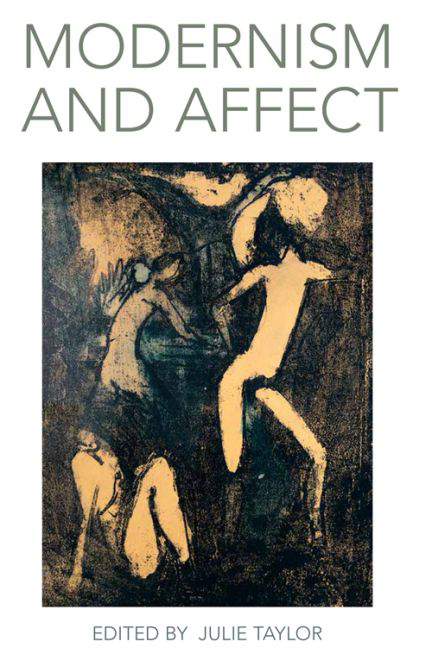Book contents
- Frontmatter
- Contents
- List of Illustrations
- Acknowledgements
- Notes on Contributors
- Introduction: Modernism and Affect
- 1 Mind, Body and Embarrassment in Henry James's The Awkward Age
- 2 The Trauma of Form: Death Drive as Affect in À la recherche du temps perdu
- 3 Logic of the Heart: Affective Ethical Valuing in T. E. Hulme and Max Scheler
- 4 The Line that Binds: Climbing Narratives, Ropework and Epistolary Practice
- 5 The Amplification of Affect: Tension, Intensity and Form in Modern Dance
- 6 Love and the Art Object
- 7 Animating Cane: Race, Affect, History and Jean Toomer
- 8 Fear and Precarious Life after Political Representation in Baudelaire
- 9 Bloom-Space of Theory: The Pleasure and the Bliss of Gerty MacDowell
- 10 From Odysseus to Rotpeter: Adorno and Kafka, Mimicry and Happiness
- 11 Making Happy, Happy-making: The Eameses and Communication by Design
- Index
1 - Mind, Body and Embarrassment in Henry James's The Awkward Age
Published online by Cambridge University Press: 15 September 2017
- Frontmatter
- Contents
- List of Illustrations
- Acknowledgements
- Notes on Contributors
- Introduction: Modernism and Affect
- 1 Mind, Body and Embarrassment in Henry James's The Awkward Age
- 2 The Trauma of Form: Death Drive as Affect in À la recherche du temps perdu
- 3 Logic of the Heart: Affective Ethical Valuing in T. E. Hulme and Max Scheler
- 4 The Line that Binds: Climbing Narratives, Ropework and Epistolary Practice
- 5 The Amplification of Affect: Tension, Intensity and Form in Modern Dance
- 6 Love and the Art Object
- 7 Animating Cane: Race, Affect, History and Jean Toomer
- 8 Fear and Precarious Life after Political Representation in Baudelaire
- 9 Bloom-Space of Theory: The Pleasure and the Bliss of Gerty MacDowell
- 10 From Odysseus to Rotpeter: Adorno and Kafka, Mimicry and Happiness
- 11 Making Happy, Happy-making: The Eameses and Communication by Design
- Index
Summary
The idea that Henry James took the nineteenth-century psychological novel as far as it could go in the direction of representing interiority is a deeply rooted critical commonplace. In Percy Lubbock's The Craft of Fiction, for instance, an early milestone of novel theory, James is positioned at the apex of a Whig history of the psychological novel, credited with perfecting ‘the method by which the picture of a mind is fully dramatized’ (1921: 156). From Dorothea Krook's ‘ordeal of consciousness’ (‘let this self-consciousness of theirs be not only intense and minute, but also active without intermission’) to Peter Brooks's ‘melodrama of consciousness’ and even Sharon Cameron's Husserlian reinterpretation of James's ‘different, barely recognizable depiction of consciousness’, conscious mental life has been a lodestone for subsequent James critics (Krook 1963: 22; Brooks 1976: 153; Cameron 1989: 9). James himself, of course, courted this way of reading his work by making ‘consciousness’ a key term of his literary theory, above all in the prefaces to the New York edition with their doctrine of the ‘centre of consciousness’. David Lodge makes this point in the course of his discussion of James in Consciousness and the Novel: ‘Henry James is a crucial figure in the transition from classic to modernist fiction, and “consciousness” is one of the key words in his criticism of fiction and reflections on his own practice’ (2002: 50). Like other critics who take their cue from this ‘key word’, Lodge's own discussion of The Wings of the Dove uses that novel to illustrate the unique power of fiction to represent interiority.
Recent criticism, however, has drawn attention to aspects of James's oeuvre that are not well described in terms of the poetics of interiority.
- Type
- Chapter
- Information
- Modernism and Affect , pp. 20 - 38Publisher: Edinburgh University PressPrint publication year: 2015



